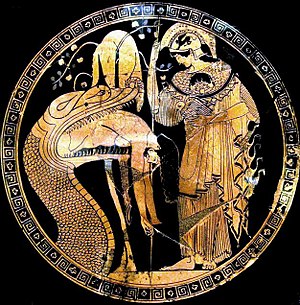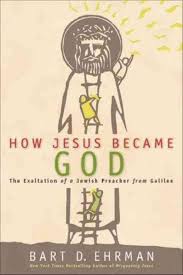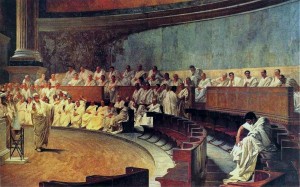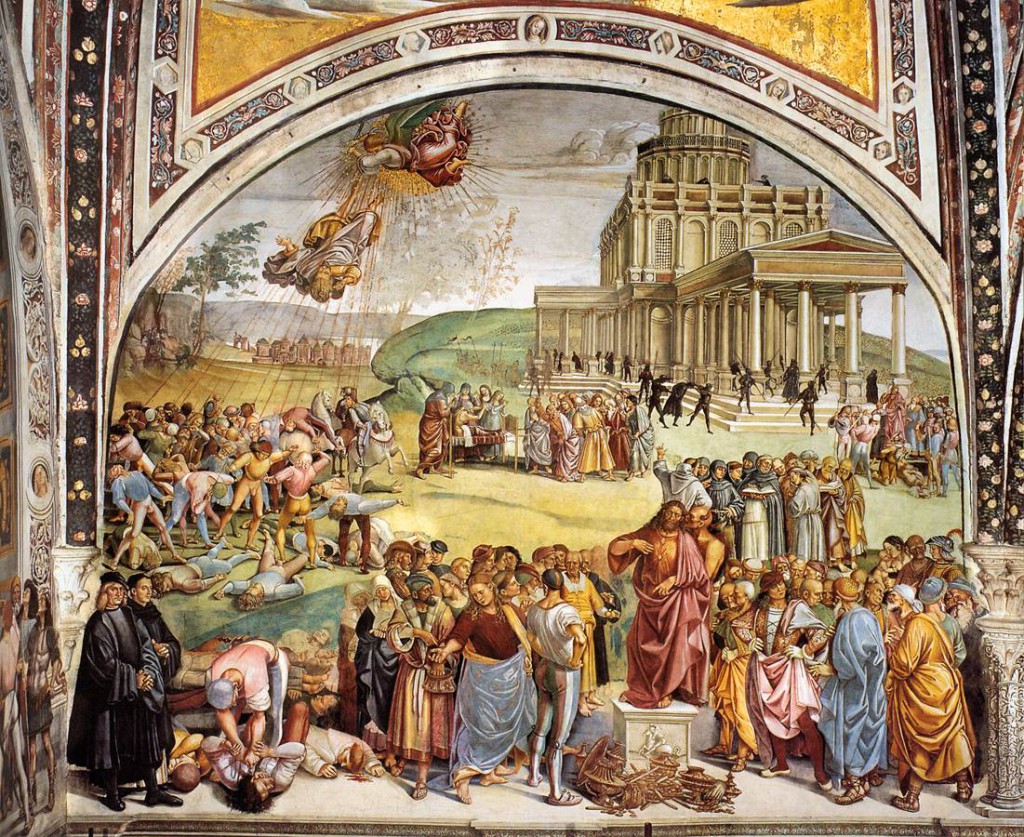Another post I promised a commenter, this time Paul George. The point here is to clarify the grounds upon which Nodet and Taylor claimed that our canonical gospels are not the best place to start in order to understand Christian origins. The evidence they cited for this claim came from the Christian writings we have prior to the appearance in the literature of any explicit knowledge of our gospels. Our gospels evidently carried very little (= zero) weight as authoritative information about Jesus until the late second century.
Before there was a “written authoritative reference point”, that is, before the Gospels of Matthew, Mark, Luke and John were embraced as standard narratives about Jesus, how did Christians write about Jesus?
Ignatius of Antioch (we will assume here the conventional identity and date for Ignatius, with his writings dated early second century)
For Ignatius, the documents about Jesus to be relied upon were not written in ink:
My documents are Jesus Christ; my unimpeachable documents are his cross and resurrection, and the faith that comes from him. — Phil. 8:2
The Roman Creed
| 1. I believe in God the Father Almighty | |
| 2. And in Christ Jesus, his only Son, our Lord; | |
| 3. Who was born by the Holy Ghost of the Virgin Mary; | |
| 4. Was crucified under Pontius Pilate and was buried; | |
| 5. The third day he rose from the dead; | |
| 6. He ascended into heaven; and sitteth on the right hand of the Father; | |
| 7. From thence he shall come to judge the quick and the dead. | |
| 8. And the Holy Ghost; | |
| 9. The Holy Church; | |
| 10. The forgiveness of sins; | |
| 11. The resurrection of the body (flesh) |
Ignatius speaks often of Christ, but refers to precise events only in succinct statements which are very close to the primitive kerygma—the proclamation of the saving death and resurrection—or which resemble those of the Roman Creed. (Nodet and Taylor, 4)
Clement of Rome (writing 15 years before Ignatius)
As Christian Scripture he knows at most 1 Cor and recalls the context of crisis in which it was written. He refers often to salvation in Jesus Christ, but, like Ignatius, without ever alluding to the facts of the life of Jesus. Only once does he cite words of Jesus (13:2), but the logion is not known in this form in the NT, which shows that for Clement there is no official text (although that does not, of course, exclude the existence of some documents). He speaks of Jesus only by way of the OT. Thus, when speaking of Christ as the suffering servant, he makes no direct reference to his life but uses only a biblical passage (the song of Isa 53:1-12). It is interesting to note that Heb 10:5 does exactly the same: “Coming into the world, Christ said: ‘You did not want sacrifice or oblation, but you formed for me a body [. . .]’ (Ps 40:7).” (Nodet and Taylor, 5)
The Didache (widely judged to be first century CE)
The Didache knows and interprets the OT. It also quotes words of Jesus related to the Sermon on the Mount, but without a precise literary link with the Matthaean text, and a very similar version of the Lord’s Prayer; there is probably a common origin in the liturgy. (Nodet and Taylor, 5)
1. And concerning the Eucharist, hold Eucharist thus:
2. First concerning the Cup, “We give thanks to thee, our Father, for the Holy Vine of David thy child, which, thou didst make known to us through Jesus thy Child; to thee be glory for ever.”
3. And concerning the broken Bread: “We give thee thanks, our Father, for the life and knowledge which thou didst make known to us through Jesus thy Child. To thee be glory for ever.
4. As this broken bread was scattered upon the mountains, but was brought together and became one, so let thy Church be gathered together from the ends of the earth into thy kingdom, for thine is the glory and the power through Jesus Christ for ever.”
5. But let none eat or drink of your Eucharist except those who have been baptised in the Lord’s Name. For concerning this also did the Lord say, “Give not that which is holy to the dogs.”
Not mentioned by Nodet and …. but surely significant is that the Didache interprets the eucharist as a thanksgiving meal without any relationship to a death of Jesus.
The Didache further admonishes a high regard be held for those who spread the word, for the importance of staying with likeminded saints and warning against false teachers. The scenario appears to be entirely oral. No written gospels (nor even epistles, for that matter) to rely upon to maintain true teaching.
The Epistle of Barnabas is a Christian interpretation of traditions from the OT or related texts . . . . This interpretation is totally based on a typological reading of the OT, with several facts or words relating to Jesus, but in a rather stylized form and in any case without a literary link with the gospels as we know them. (Nodet and Taylor, 5)
Polycarp of Smyrna, whose background is similar to that of Ignatius of Antioch, is familiar with the writings of Paul and makes a number of references to them. He has some knowledge of Matt, perhaps in the form of written notes (compilations of logia), but certainly not as a normative work. (Nodet and Taylor, 5)
Polycarp also speaks of being attentive to the word handed down orally in order to refute those who deny the incarnation.
The Shepherd of Hermas belongs to the timeless world of apocalyptic and knows no Scripture apart from itself (cf. also Rev 22:18 f.). (Nodet and Taylor, 5)










